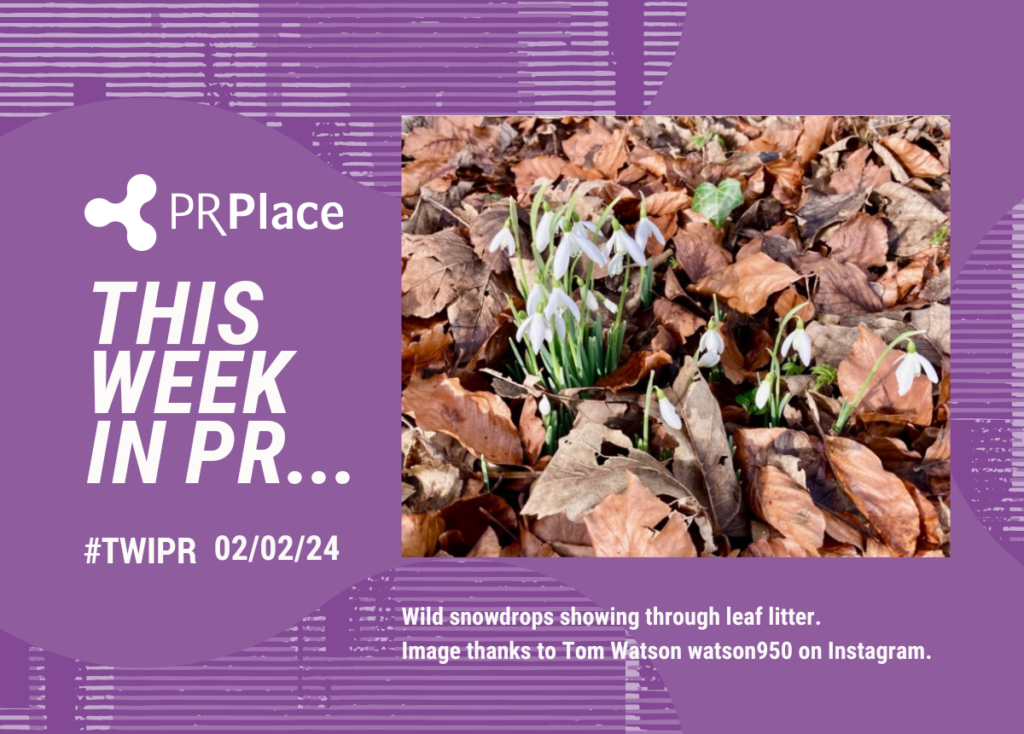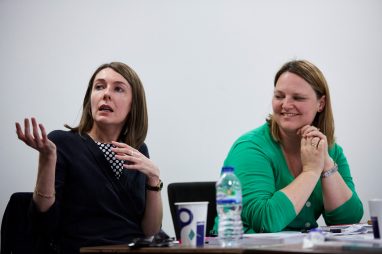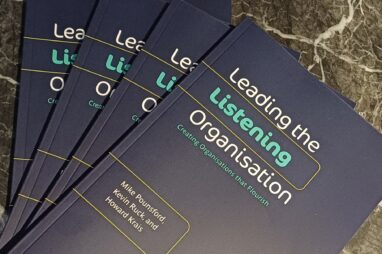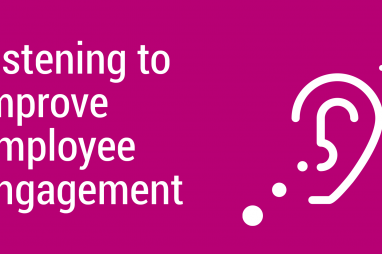This week in PR (2 February)

About the author
Richard Bailey Hon FCIPR is editor of PR Academy's PR Place Insights. He teaches and assesses undergraduate, postgraduate and professional students.

It happened this week
- Ben Ormsby: The power of authenticity (1 February)
‘So, while I’ll be sad to see Jurgen go, I think his last parting gift (apart from what is proving to be an exciting season) is a newfound understanding of what being authentic means and why sometimes that is perhaps the top tip forgotten by many media training courses.’
Profession and ethics
Calling all professional PR people and members of CIPR. The deadline for logging your CPD is approaching. Log yours now. Professionals care about their professional development. @CIPR_Global pic.twitter.com/8yNHA03Epc
— Anne Gregory (@GregsAnne) February 1, 2024
- Jane Lawrie: Opinion: The Role Of Corporate Affairs Leaders In Navigating The Future Of AI (29 January)
‘I hosted a roundtable with several of my corporate affairs and sustainability peers where we explored the intersection of AI and ESG and how we can maximize the opportunities created by new technology; while also building the guardrails to mitigate potential ethical, environmental and reputational risks that emerge when new technologies develop with such pace and scale.’
Purpose, climate and ESG
SUSTAINABILITY COMMUNICATION DIPLOMA
- Matt Peacock: The two ESG trends that will most affect communicators in 2024 (29 January)
‘DEI will be weaponised in this global year of elections. A pivot to address the burden of poverty and extend access beyond the monied few is the best defence for all who believe in diversity and inclusion. It is also long overdue.’ - Tim Le Couilliard: Purpose on Payday January 2024 (26 January)
‘With 49% of the world’s population set to go to the polls this year, it’s the most democratic year in human civilisation. With climate change accepted by many to be the single biggest challenge to human civilisation of all time, you’d have hoped that this year there would be the opportunity to take action on the climate and vote accordingly.’
Consulting, skills and careers
-
- Ben Smith: Matt Neale, CEO of Golin, on the PRmoment Podcast (1 February)
‘I wanted a professional advernture and New York was top of that list. The size of the companies out here, the profits generated, the resilience of the US economy, it’s a very different system here. The internal market is vast.’ - John Harrington, Danny Rogers and Evie Barrett: BCW and H&K merger ‘one hell of a challenge’ – PR Week podcast (31 January)
‘We’re living in an environment where top line growth is very slow, when costs are rising. So if [WPP] is going to improve its profitability, it has to cut costs.’ - Terri McCollin: Want to work in PR in the US? Here’s 10 top tips (31 January)
‘While PRs are no strangers to networking in the UK, in the US, it’s on a whole different level. Networking isn’t just business here – it’s a way of life. The power of networking is huge: it’s not just about the occasional business mixer; it’s about making yourself known in circles that can make a difference to day-to-day business and your career overall.’ - Maja Pawinska Sims: WPP’s Mark Read: Burson Will Be A “Top Two Global PR Firm” (30 January)
‘Read said establishing Burson as a “leading global strategic communications agency” was a key element of building “world-class, marketing-leading brands” – one of WPP’s four pillars to achieving its goals: “capture the opportunities offered by AI, maximise the potential of creative transformation and deliver faster growth, higher margins and improved cash generation.” - Anne Cantelo: 2024 – Welcome to The Fractional World (29 January)
‘Strategic direction is usually not a full-time job in a small company. You probably only need someone 2 – 4 days per month, just a fraction of that person’s time.’
- Ben Smith: Matt Neale, CEO of Golin, on the PRmoment Podcast (1 February)
Gender, diversity, health and wellbeing
- Stephen Waddington: The privileged role of men working in public relations (2 February)
‘66% of practitioners below director are female, and 34% are male. The situation is reversed in senior roles. 54% are male and 46% are female.’ - Ruby Kite: Neurodiversity: How to boost PR hiring rates among underrepresented groups (31 January)
‘Having largely focused on addressing the lack of ethnic diversity in the industry, PR agencies must additionally drive the conversation on neurodivergence.’
Public and third sectors
Politics, public affairs and public sphere
- Mark Glover: Labour means business… (1 February)
‘The question that seems to hang over the conference is – does business have real confidence that will be backed by investment in a future Labour Government, or is it just a case that business is listening because Labour is the only thing on offer?’ - Joe Smallman: In Conversation with Professor John Curtice (31 January)
‘On immigration, an issue prioritised by Number 10, the polling also suggests strategic errors. Not only does the subject not have the same salience to voters as the NHS or the economy, but evidence suggests that perceived government failure on the issue is pushing voters towards Reform UK rather than keeping them with the Conservatives.’
- Keith Gladdis and others: Media Network: Who is influencing the influencers in Westminster? (30 January)
‘We asked Atul Hatwal at our data analytics partner DeepSeer to find which political reporters were shifting the political needle most among political decision makers in Westminster.’
Crisis, risk and reputation
- Amanda Coleman: Crisis communication now rather than then (30 January)
‘I was listening to the amazing Professor Lucy Easthope talking at a CIPR event this week and she referred to… doing 2019 communication. Are you doing 2019 communication and crisis communication?’
Behaviour and influence
- Lynn Group: BiteSCIze with Rosie Webster (30 January)
‘What’s the best way to build a business that has impact? The answer is to absolutely have impact as one of your top priorities – measure it, and assess your success against it – not just against commercial success. Everything else will flow from there. If it’s not a top level business goal that you measure yourselves against, you won’t succeed.’
Internal communication
INTERNAL COMMUNICATION DIPLOMA
Media, digital and technology
- Abbey Crawford: SEC Newgate AI Weekly (1 February)
‘As the 2024 election cycle gains momentum, lawmakers in at least 14 states have swiftly introduced legislation to address the challenges posed by artificial intelligence and deepfakes in political campaigns.’ - Bruno Amaral: AI Adoption in Public Relations: How it started and how it’s going (1 February)
‘One of the most practical and comprehensive works we found was the book Mastering Crisis Communication with ChatGPT: A Practical Guide, by Philippe Borremans (2023).’ - Dan Slee: LONG READ: The end and the beginning of a new local news (29 January)
‘What the future of local journalism may look like could be found in Sheffield, Manchester and Liverpool. According to this model, the future isn’t print its daily emails and a paid for bonus email funded by subscribers.’


